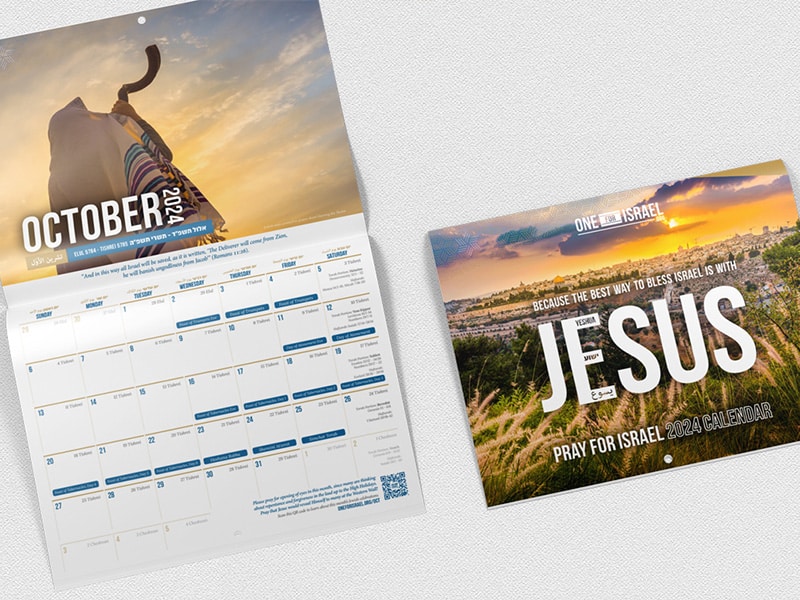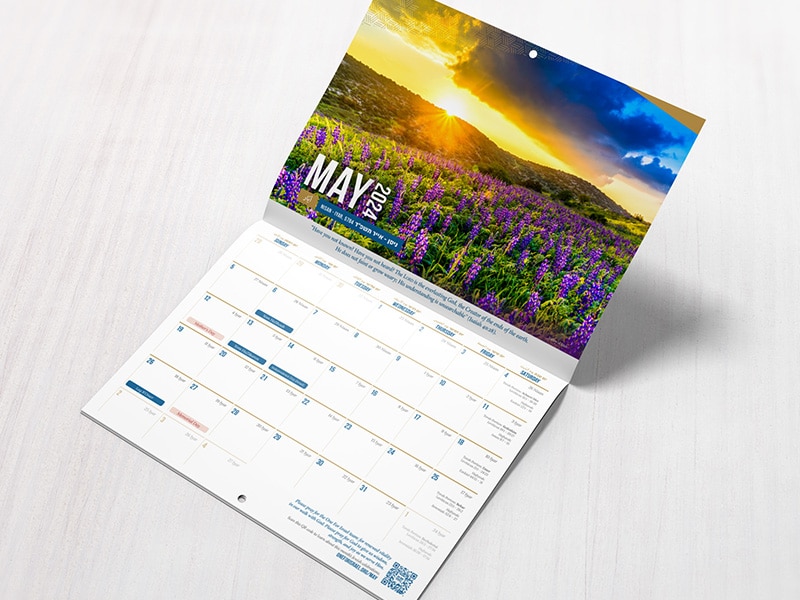It was the first year of King Darius’ reign, and the long exile of the people of Israel in Babylon would soon come to an end. Daniel was reading his Bible. Then, the penny dropped…
He wrote,
“I, Daniel, understood from the Scriptures, according to the word of the LORD given to Jeremiah the prophet, that the desolation of Jerusalem would last seventy years. So I turned to the Lord God and pleaded with him in prayer and petition, in fasting, and in sackcloth and ashes.” (Daniel 9:2-3)
He realised that the prophecy was going to be fulfilled very soon, so he rolled up his sleeves and got praying with all his might. But why? If he knew that God would do this anyway, why did he have to ask for it? What can we learn from this mighty man of prayer?
First of all, we can see that Daniel was reading the Bible and seeking to understand the Scriptures in order to know the heart and plans of God.
Daniel rightly saw Biblical prophecy as a guide to future events. This is how he came across the prophecy in Jeremiah and the realisation that it was about to happen. Amos 3:7 says,
“Surely the Sovereign LORD does nothing without revealing his plan to his servants the prophets.”
Daniel was willing to engage with the Word of God and believed that it was true – past, present and future. Isaiah, Ezekiel, Zechariah, Revelation, and of course, the book of Daniel, are full of prophecies that have yet to be fulfilled, concerning the Middle East and the whole world. Jesus also speaks of things to come in the Gospels.
Sometimes people can be squeamish about thinking about the future, but God put all of that information there for us on purpose – he wants us to know!
Isaac Newton, the famous scientist, was also a man steeped in scripture. He believed that it is the responsibility of every believer to try to understand what God’s plans and purposes are, according to the Word God has given us. He warned of the grave consequences of failing to do so, just as the Jewish people are judged harshly for missing our Messiah when he came. With his penchant for mathematics, he approached the book of Daniel with the aim of understanding what all the numbers meant. He studied for many years, and wrote a book called “Of ye Day of Judgement & World to Come”[1]. Although he was writing in the seventeenth and early eighteenth centuries, his thoughts about the timeframe within which the Jewish people would once again return to Israel (based on the prophecies in Daniel) were incredibly accurate. He wrote and thought a lot about the restoration of Israel in the light of Biblical prophecy, and what that meant for the rest of the world too. He understood that the recreation of the State of Israel in the mid twentieth century was part of God’s plan, detailed by the prophets long ago.
God has told us what he plans to do – but will we pay attention to what he has said? Will we digest the information that we have in our very hands, and seek to understand what it means? Why not get to know some of God’s prophecies, and start to pray into them, as Daniel did.
Second, Daniel did not ask God to come and fix things in his world according to his own ideas, but took the adventurous decision to step into God’s world, and share in God’s plans.
Of course God cares about every detail of our lives, it’s true, but how wonderful it is when we also care about the details of HIS realm.
What a great joy it must be for a father to have their children ask to be part of the family business – in some measure they are communicating the message: “I believe in what you are doing, I believe in you, I want to help you build what you are building”. What an expression of trust, respect, and desire for relationship. Oftentimes children aren’t really very good at helping – especially when they are young – but the expression of desire to help and to work alongside their dad is beautiful. And that is primarily what God wants from us: relationship. He wants us to want to be with him. He wants us to work alongside him in partnership.
Indeed, John Wesley passionately believed that God would not act without our partnership – he wrote: “God does nothing but in answer to prayer”, in his Plain Account of Christian Perfection[2] and whilst I’m not certain how accurate that statement is, I agree with the concept, for God is serious in his desire for partnership with his people. We can see this in the fact that the Great Commission is his one and only plan to take the gospel to the world, entrusted to us, his disciples. And it is also true about prayer. He wants us to help him by praying his plans into being – to give our “Yes and Amen!” To say, “Come, Lord Jesus, come!” What a wonderful thing that he longs for us to work alongside him!
Are we in agreement with God’s stated purposes? Are we ready to align ourselves with them, and pray them in? Or do we care more about our own lives than the kingdom of God?
Lastly, Daniel famously prayed three times a day.
Prayer, it has often been said, is a two-way conversation. As a young believer, I started to follow Daniel’s example and prayed three times a day. I soon found that I was hearing as well as speaking.
The communion, the fellowship, the relationship with God grows as we take the time to pray. And the three-a-day prescription really helped me in a practical way to stay on track.
We can share our hearts with God, our needs, our desires, and he can share his thoughts and desires with us too. We grow closer together. If we are willing to listen, we can learn more about how things look from God’s point of view.
Prayer establishes the nature of our relationship with God. If we consider the Lord’s Prayer, as taught by Jesus in Matthew 6, the lines are clearly drawn: he is the Father, we are his children. He is in heaven, we are on earth. He is holy, we need forgiveness. He is the provider, we are dependent upon him. We are weak, he is strong. He is King, he has all authority, he alone has the right to rule and call the shots, and we can acknowledge this reality as we pray. We are often tempted to consider God our servant, obliged to help us, or some sort of cosmic force, instead of remembering the truth. When we sit before him in prayer, when we consider who we are really talking to, those pretensions tend to flee away. It helps us to keep perspective and stay on track when we are putting ourselves before his throne throughout the day.
We can easily be overwhelmed by our own little lives, never mind the fate of the world – and sitting with God to talk it over really helps restore a good perspective. He can help us know what part in particular he wants us to play in ushering in his purposes as we welcome his rule: “Let your kingdom come, let your will be done”.
Daniel’s prayers and fasting actually helped bring about the completion of God’s promises for his people back in the 6th century BC, and our prayers too can be part of releasing God’s promises on the earth today.
The words you utter in prayer really make a difference. You are partnering with our Father God in his heavenly business.
For more study articles, videos and up to the minute ONE FOR ISRAEL news
follow us on
Facebook, Twitter, Instagram, YouTube
or subscribe to our blog and newsletter!
(1) From S Snobelen’s paper: “The Mystery Of This Restitution Of All Things”: Isaac Newton on the Return of the Jews pp 12-13
(2) The Works of John Wesley (1872 ed. by Thomas Jackson), vol. 11, # 29, pp. 366-446.














